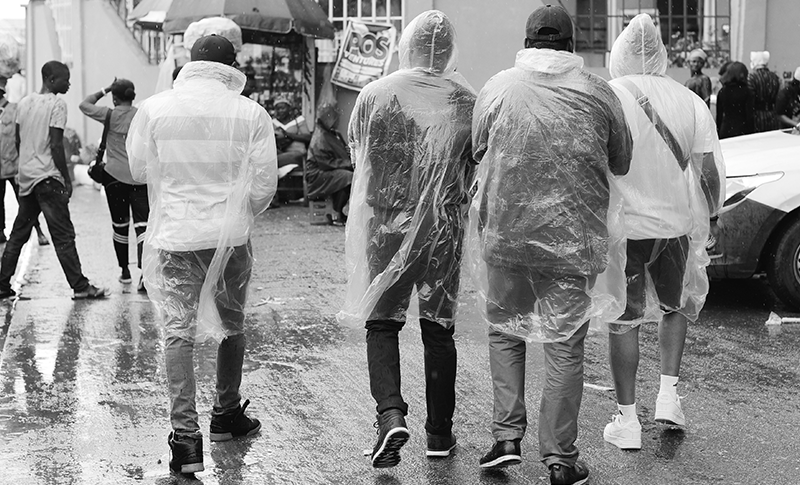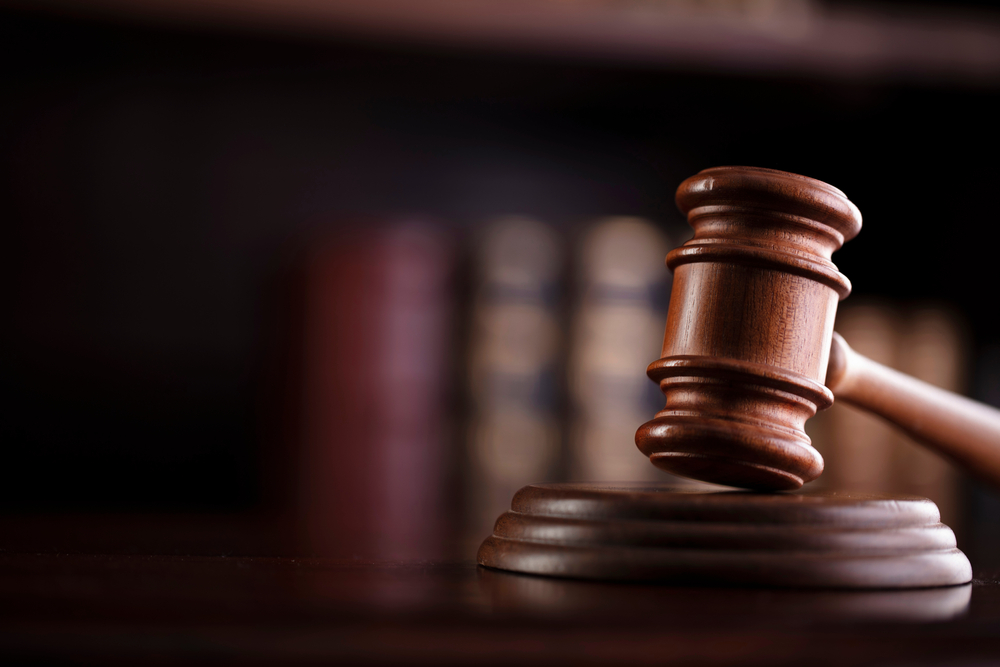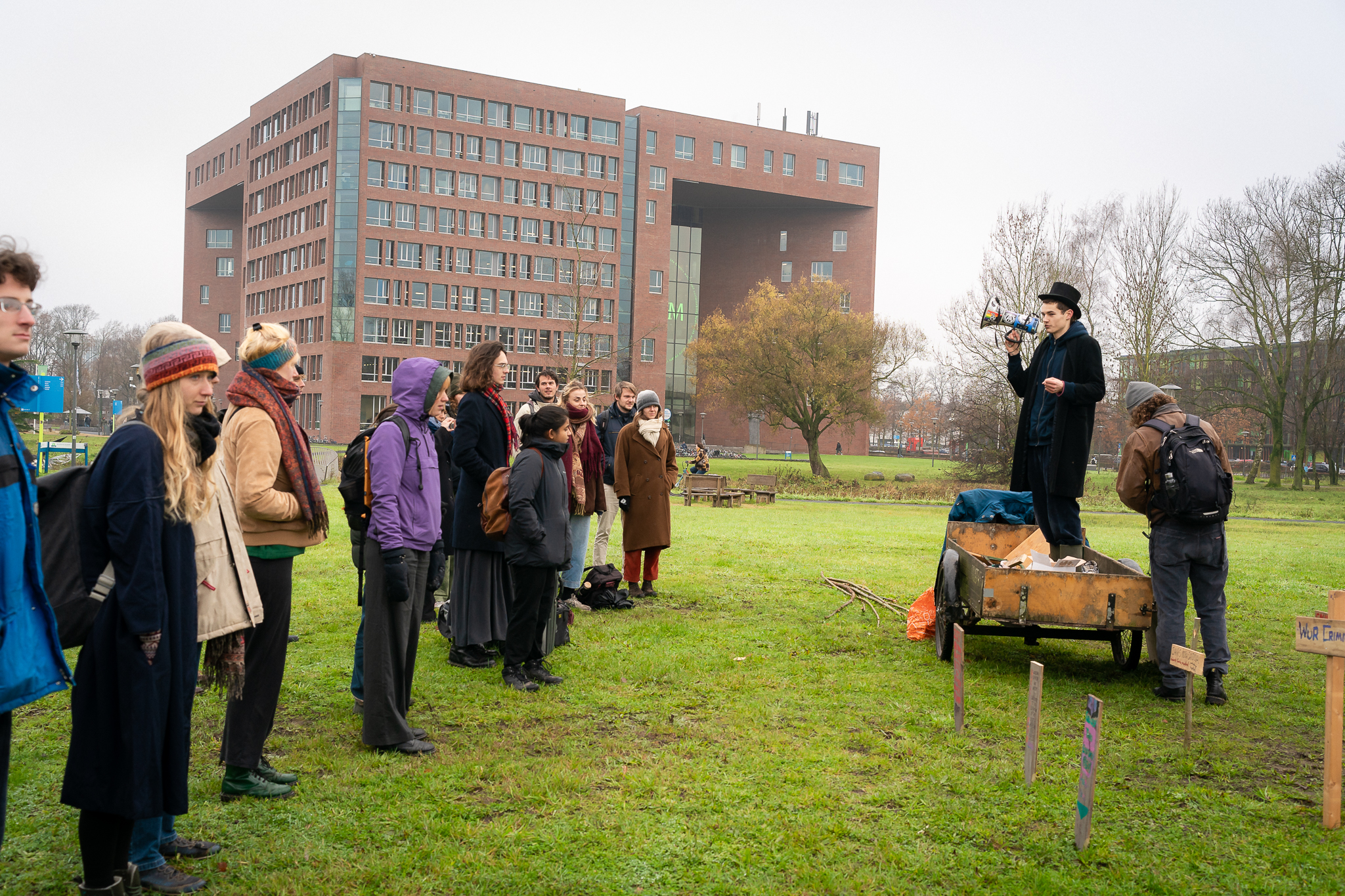For the first time in history, a court has allowed a university to deprive a fraudulent PhD student of his doctorate. The PhD candidate in question was from Wageningen. And that is good news, says rector magnificus Arthur Mol.
Mol says he was ‘momentarily nonplussed’ when confronted with the severe case of fraud by P. (see inset) five years ago. As the chair of the Academic Board, he has since been intensively involved in the case.
You tweeted the news about the court’s verdict. That draws attention to a case of severe scientific abuse at WUR. Why did you do that?
‘I think it is very important that we now have a court ruling showing a university can revoke a doctorate that was granted under false pretences. I also think it is very important that by doing this, we show that we give top priority to scientific integrity. If you do not act with integrity as a scientist, that has consequences. And the ultimate consequence is that you don’t get your degree or it is taken away from you. By going through this process, the university shows it takes these things seriously.’
The Academic Board doesn’t have the right to revoke the title of doctor. Did you know that when you took this decision?
‘No. We were amazed when the counterparty questioned that right. The law states explicitly that the Academic Board can grant a doctorate but does not say explicitly that it can revoke it. Other places have revoked doctorates previously, but that was never disputed. This is the first time there has been a legal dispute about this decision. That is what makes the court ruling so special.’
Was an alternative sanction to revoking the doctorate considered?
‘The Academic Board soon reached a unanimous decision that this was the only possible sanction in this case. Data was manipulated on such a large scale, both citations and numbers. All the changes are designed to support the conclusions reached by the PhD candidate; you would get different conclusions if you used the original data. So these aren’t human errors, they are deliberate changes. If you do that, you really are undermining everything science stands for.’
The doctoral thesis has been withdrawn by WU. In addition to the thesis, P. has written articles with Wageningen co-authors. Have they also been investigated?
‘Yes. And nothing was found, apart from one small error in one of the articles that has been corrected.’
Has P.’s employer been informed?
‘When we discovered the fraud, the employer at the time was informed of the suspicions. But we won’t be alerting all his future employers. He has lost his title of doctor. If he continues to use it and makes an explicit connection with Wageningen University, I can imagine us taking action.’
The judges, the Academic Board, the national scientific integrity organization LOWI and a complaints committee all conclude the supervisors were not at fault. Shouldn’t they have performed more checks?
‘Science isn’t possible without basic trust in the scientist. Science has a lot of checking mechanisms and they are needed, but in the final analysis you rely on your trust that other scientists act with integrity.
These aren’t human errors, these are deliberate changes
This violation of scientific integrity could only have been prevented if you had sat next to the PhD candidate the whole time to see whether they were copying a citation or number correctly. You can’t do that all the time so you need a basis of trust.’
What are the key lessons you draw from this case?
‘The importance of teaching people scientific integrity. It was already part of the basic PhD training programme and we will now be doing it in the Master’s phase too. This case shows the consequences if you don’t act with integrity in science. However, the whole process took a long time, which is extremely frustrating. The articles were available and being used for five years, whereas we knew they were wrong. But there was no alternative. You have to go through all the steps carefully, because of course it is a major consequence.’
Caught
Frank (not his real name) sits in his hotel room that evening in 2018 reflecting on a confusing day. He is at a conference in the US. What is troubling him is a workshop he attended that day. German scientists have carried out exactly the same research as his colleague P. His colleague’s study shows a clear relationship between rainfall and the number of prisoners in Nigeria in the first half of the previous century. P. obtained his doctorate some six months earlier for research that included this article. But the strange thing is that the German scholars don’t find any correlation. They must have made an error. Frank had a lively discussion with them. He knows the study by his colleague P. like the back of his hand. They have worked together intensively for years and were in the same PhD cohort. Frank got his PhD a couple of months after P. Cum laude. And now the Germans are claiming it was all wrong. The next day, a Sunday, he sits down with the German academics. They conclude both parties have used exactly the same source, but P.’s numbers are completely different. They deviate so much from the original file that it can’t be a question of sloppiness. Frank tells his supervisor the following day. By the end of the week, a scientific fraud complaint has been submitted to WUR’s Scientific Integrity Committee. It decides that P. has committed fraud on a large scale, a conclusion also reached later by the national scientific integrity organization LOWI. He did this not just in one article but in all his thesis articles. In May 2019, the WUR Academic Board published its decision to revoke P.’s doctorate. Last month the court in Arnhem confirmed the Academic Board’s decision.
(The names of the people involved have been withheld for privacy reasons. Resource approached P.’s supervisors for their story, but they prefer not to comment at present.)

 The study showing a clear relationship between rainfall and the number of prisoners in Nigeria in the first half of the previous century turned out to be wrong.
The study showing a clear relationship between rainfall and the number of prisoners in Nigeria in the first half of the previous century turned out to be wrong. 

